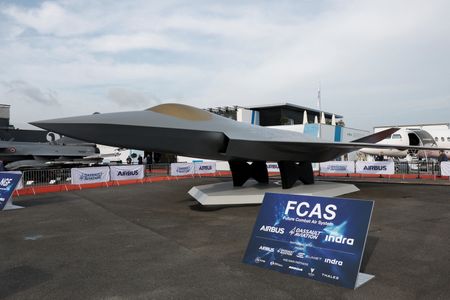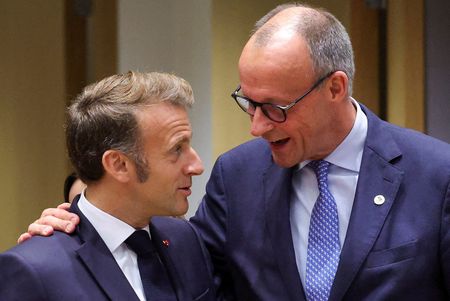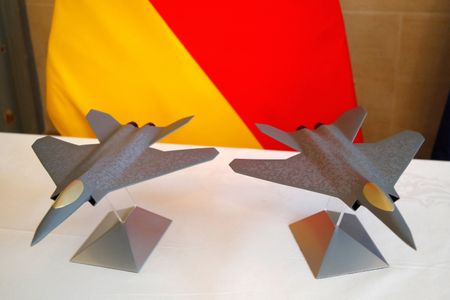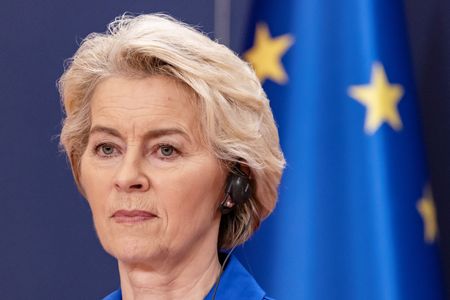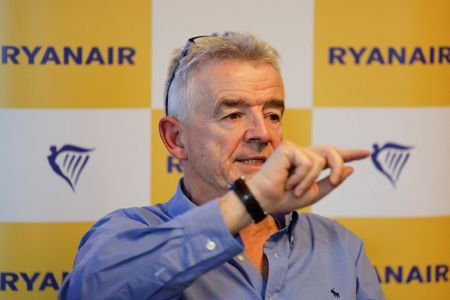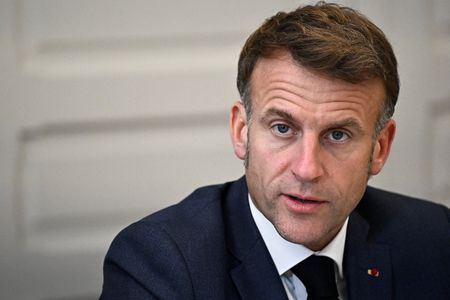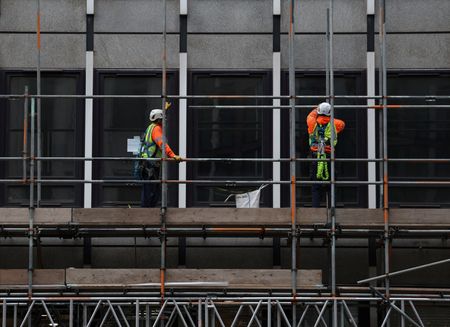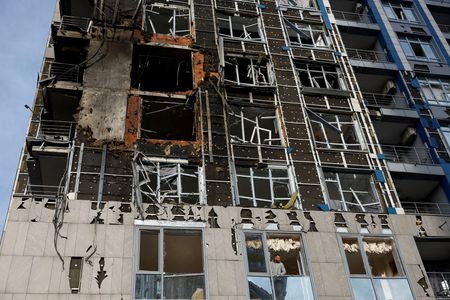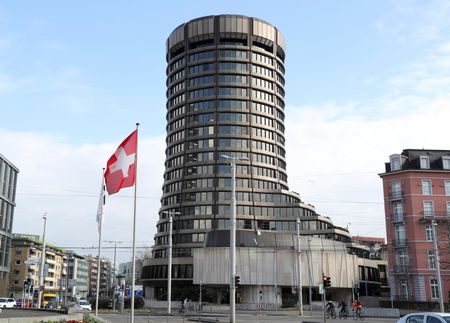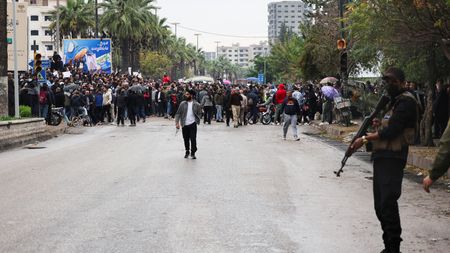By Michel Rose, Sabine Siebold, John Irish and Tim Hepher
PARIS/BERLIN (Reuters) -France and Germany are ratcheting up pressure on their industrial champions to rescue Europe’s next-generation fighter as the 100-billion-euro ($115 billion) project teeters on the brink of collapse, sources close to the matter said.
The Future Combat Air System (FCAS), floated more than eight years ago, has been mired in disputes between France’s Dassault Aviation and Airbus over workshare and prized technology.
Following talks last week between French President Emmanuel Macron and German Chancellor Friedrich Merz, Berlin has drafted a “decision roadmap” as part of a mid-December deadline to strike a deal, sources told Reuters.
“The objective is that the CEOs of the participating industrial partners find and sign a written agreement on the core principles of cooperation for the next programme phase by mid-December,” the document reads, according to excerpts provided to Reuters.
A government source said the roadmap, which also tasks air force chiefs with a review of their respective requirements, was designed to reassert political control.
Airbus and Dassault declined to comment.
‘DECISION ROADMAP’ AIMS TO END INDUSTRIAL IMPASSE
At stake is the next phase of plans to deliver a fighter flanked by drones for France, Germany and Spain by 2040, mirroring a UK-Italian-Japanese initiative called GCAP.
Talks have stalled amid mistrust between Rafale manufacturer Dassault and Airbus, which represents both Germany and Spain in the project, known in France as SCAF.
Dassault insists on leading design and development of the core fighter, citing blurred lines of responsibility and its track record of building fighters from start to finish. It says Airbus is free to lead its own uncrewed areas of the project.
Airbus says this goes against agreements that each nation has an equal say.
The family-owned French fighter firm and partially state-owned jetliner giant have both sharpened their rhetoric, inviting the other to leave if they don’t like the agreed arrangements and pledging to go it alone if necessary.
German sources say Dassault wants 80% control, a figure Dassault denies. They accuse Dassault of limiting access to high-value work.
French sources want to retain parity with Airbus, which stood at 50% before Spain’s arrival. They suspect Berlin of wanting to blunt Dassault’s technological advantage.
“What seems to have happened was that a very close and strong political relationship between Paris and Berlin has weakened somewhat and the industrialists were let off the leash and are really having a go at each other,” Douglas Barrie, IISS senior fellow for military airspace, said in a recent interview.
Failure to break the deadlock risks exposing Europe’s inability to forge defence unity at a time when war has returned to the continent.
After weeks of political turmoil in Paris, the capitals are deepening efforts to avoid a damaging blow to Franco-German co-operation.
Still, doubts persist whether Macron, nearing the end of his term and weakened by political crises, can strong-arm Dassault into concessions. Cushioned by strong Rafale exports, Dassault is under less immediate pressure to act and may be playing for time before 2027 elections, some officials and executives said.
Dassault declined to comment.
PLAN B
As FCAS faces pivotal decisions over its future, options are being prepared for a repeat of the schism that saw France quit Eurofighter in 1985, leaving Dassault and Airbus to compete.
Dassault has been a cornerstone of France’s defence since World War Two, building all generations of jets carrying its nuclear deterrent, and could most easily go alone.
German industry has threatened to tap Berlin’s growing defence budget to bankroll a rival project.
People familiar with the plans said these included a standalone stealth fighter. Other options included teaming with Sweden’s Saab, currently without a partner, or BAE Systems-led GCAP. Airbus has maintained regular CEO-level contacts on the issue with both camps, they said.
A minimalist compromise increasingly touted would narrow FCAS to a “combat cloud” of secure connectivity while letting Airbus and Dassault develop separate jets – a partial divorce allowing Paris and Berlin to save face and avoid a public split.
Each side continues to call the other’s bluff.
French planners doubt Germany can easily build a competitive stealth fighter or engine alone, nor fit into the swiftly advancing GCAP project.
Yet even though France has a track record of standalone developments, its budget crisis poses major funding hurdles.
Before Berlin’s latest push, one German source put the chances of a joint fighter at “less than 50%”. Both capitals are now racing to salvage the project. “We can’t afford to let this project fail,” a French government source said.
($1 = 0.8680 euros)
(Additional reporting by Florence Loeve and Giulia Segreti. Editing by Richard Lough and Mark Potter)

